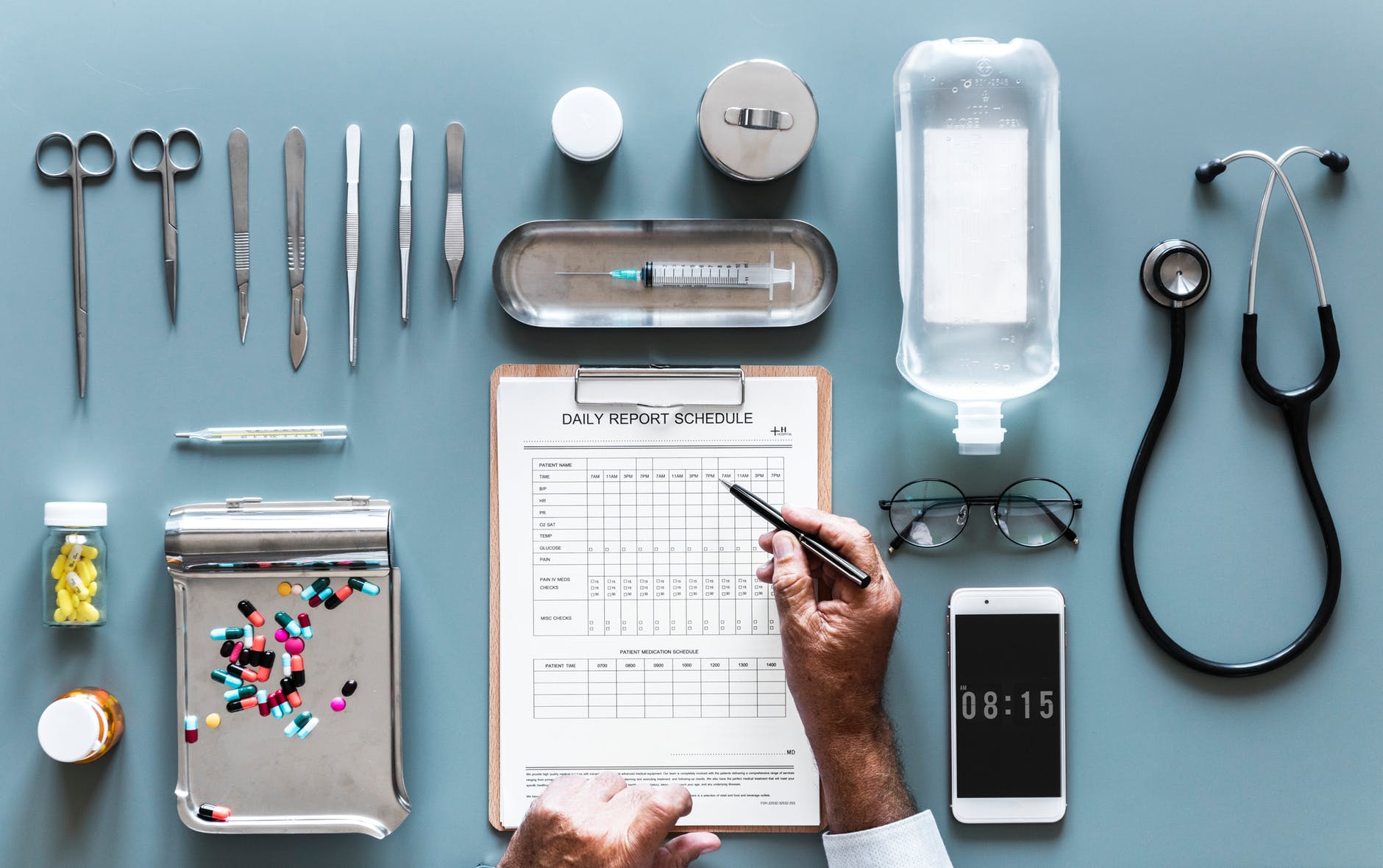“In 2019, 1,762,450 new cancer cases and 606,880 cancer deaths are projected to occur in the United States”.
The word cancer can be the most daunting

word you can ever hear from your practitioner, and the most freighting battle to face. The moment being in the oncologist office and you hear the words” you have cancer” the sounds around starts to muffles your vision narrows and mental thoughts manifest into physical sickness and stress. Subsequently you’re bombarded with pathology reports, biopsies, CTs, MRIs and all of these top-heavy jargon’s and terms. This experience is what some of our loved ones face often.
As Healthcare Professionals, we truly understands the stress and pressure of trying to figure out and understand your own healthcare when it comes to something as serious as cancer. We also understand that simple Google searches will never be equivalent to an Oncologist demonstrating bedside manner and understand the many frustrations and emotions that a patient faces when faced with cancer. Therefore, I feel that it is important for each of us to understand the basis of cancer for our loves ones or ourselves. Not only for reaction but for proactive measures as well. It is important to be well informed of oncology conditions and be able to ask the right questions. In this article, we will review some basic Oncology terms and conditions and questions to ask your doctor.
First let’s began with the Stages vs Grading;
Grading
Grading cancer is identifying the differentiation of cells of normal cells from cancer cells ranging from Grade 1-4. An Oncologist may indicate that they want to view your healthy cells from your cancer cells under microscope, this is an attempt to grade, it lets them know how much cancer is in the body by viewing the different cells.
During this discussion, the practitioner may mention the term “Carcinoma”: Cancer that starts in skin or tissues that line the inside or cover the outside of internal organs will be discussed or mentioned. Carcinoma is a type of cancer cell.
You will often see these terms on a pathology report or the impression (doctor’s summary) of a consultation note of a medical record. Therefore, it is important to ask your Oncologist to walk you through what is the grade and what is the stage. Grading tells us how much cancer is in the body while staging tells us where it has spread to from the original site.
While, the stage of a cancer describes the size of a tumor and how far it has spread from where it originated. On a pathology report or medical records staging can be seen in roman numerals ranging from 1-4 but in roman numerals;
- Stage 0– Indicates that the cancer is where it started (in situ) and hasn’t spread. This may be referred to Localised-A tumor restricted to a single site.
- Stage I– The cancer is small and hasn’t spread anywhere else.The oncologist will refer to this as being;
- Benign-Not spreading, usually a more mild disease.
- Stage II– The cancer has grown, but hasn’t spread.
- Stage III – The cancer is larger and may have spread to the surrounding tissues and/or the lymph nodes (part of the lymphatic system). This may be referred to as: Malignant-Cancerous, where the tumor grows uncontrollably and may spread.
- Stage IV– The cancer has spread from where it started to at least one other body organ; also known as “secondary” or “metastatic” cancer;
- Metastases-Where the tumor has spread to other parts of the body beyond the primary site. Metastatic sites (secondaries) my be regional or distant from the original tumor.
When discussing or reviewing staging or grading with your Oncologist you may want to ask:
- What kind of cancer do I have?
- Is it a common type or a rare one?
- Can it be cured? Or Controlled?
- What stage is it?
- What does that mean?
- What are the next steps in my condition.
Never be afraid to ask the doctor to speak slowly or thoroughly explain what he/she maybe telling you. You or your loved ones are not expected to know intricate information this is what the specialist is for. Never be afraid to ask questions especially when it comes to your life or the life of your friend or family member. Once your condition is better understood, the physician may discuss treatment as the next option. However, you can always get a 2nd opinion because it is important to have more than one set of eyes and institution on interpreting the results of your diagnoses. Healthcare is a collaborative effort, feel free to take the initiative that collaboration yourself. Give your practitioners permission to share your medical records which each other for a collaborative discussion on the best way to provide treatment.
When it comes to treatment it’s important to know the different types of treatment that may be available to you. Your Oncologist may discuss the following below:
Palliative treatment-treatment which relieves the symptoms and pain. To make you comfortable!
Curative treatment-treatment to destroy the cancer. To Cure!
Depending on what the cost of different treatment understanding what options are available to you is important to make an informed decision on how you choose to proceed forward.
Surgery and Radiotherapy can be more intense. Therefore, ask your oncologist to be clear on explaining to your why you would need surgery or radiotherapy. Remember, this goes back to the grading and staging of the cancer. Depending on how bad it is and where it located within the body surgery may be an option to remove the cancerous cells before it spreads.
If radiation is needed then it can be determined on where to place radiate to simply target that specific are or whole body to cancerous area and kill the cells.
Immunotherapy is a type of cancer treatment that helps your immune system fight cancer. The immune system helps your body fight infections and other diseases. It is made up of white blood cells and organs and tissues of the lymph system. Immunotherapy is a type of biological therapy
When discussing treatments you may want to ask:
- Do I have to undergo any further diagnostic tests before we can begin treatment?
- Should I see a specialist? Get a second opinion?
- What are my treatment options?
- Which treatment or combination of treatments would you recommend and why?
- Where can I receive treatment—at my local facility or one farther away?
- What types of side effects or impact will each option have on me and my lifestyle?
- Am I eligible for a clinical trial?
- Is there a genetic link to this type of cancer? Should my other family members get tested?
- What can I do now and going forward to keep myself in the best possible shape?
- Where can I get more information or support?
Understanding of Oncology can be intense and complex. Remember, if you are a loved once is faced with a diagnoses with cancer to keep records of your files and medical history along with treatment and therapy received. Note your side effects and ensure you are receiving something to prevent them before going under any procedure. Keep record of detailed questions to ask your doctor and if you don’t understand something ask for illustrations and an explicit and simple explanation to help you understand. Ways to support a loved one diagnosed with cancer; attend appointments with them, find support groups and meetings, research treatment options together and help them create questions to ask the doctor, most importantly show support!
Remember be in the driver’s seat of your own health!, With our support.
“OurHealth, OurWay”
references: https://www.cancer.gov/about-cancer/understanding

